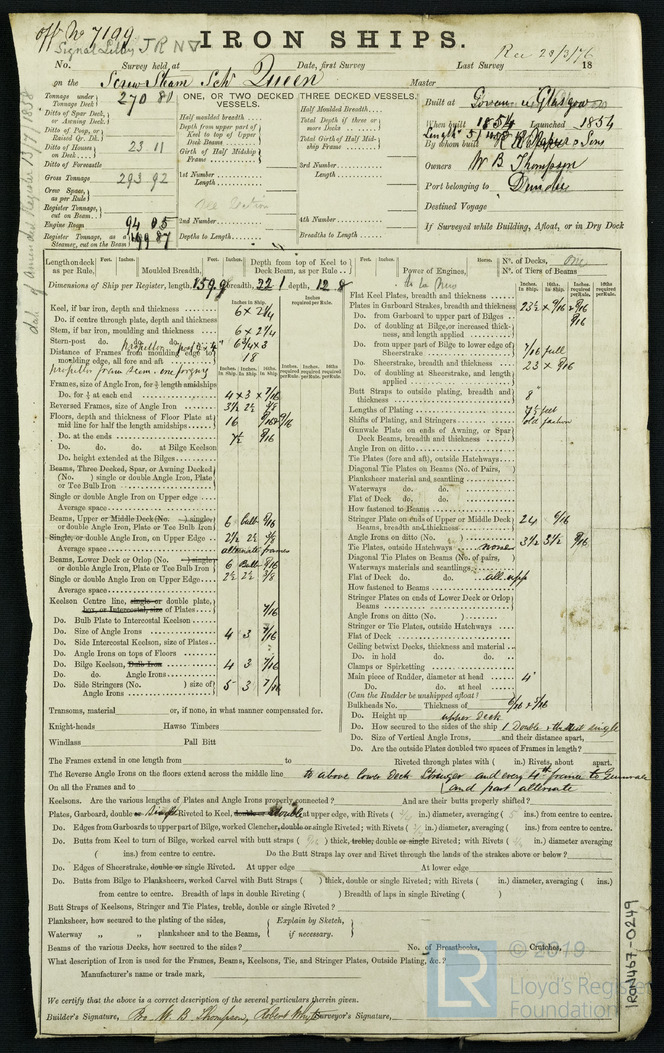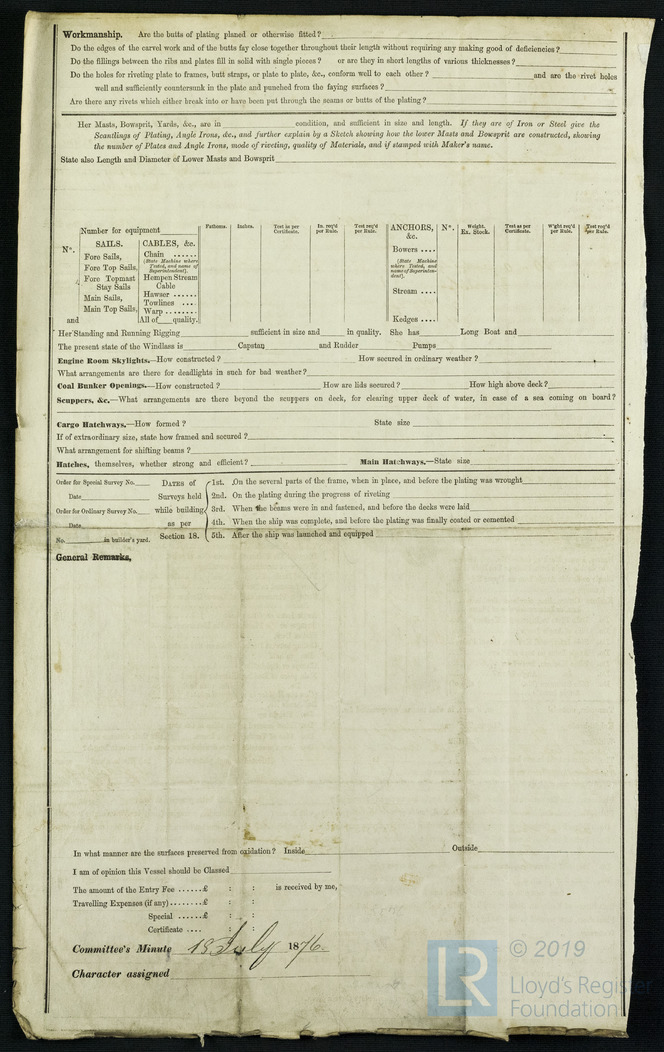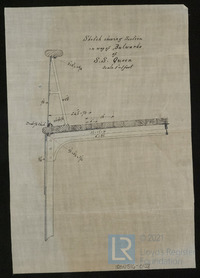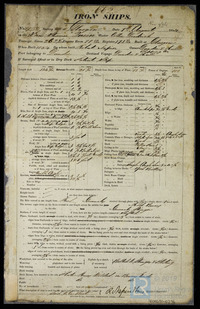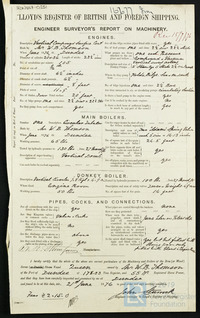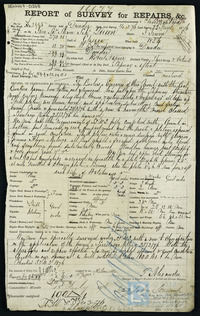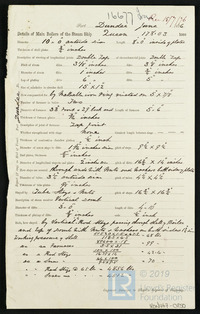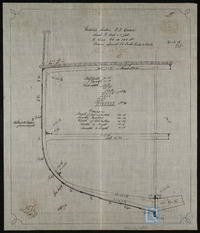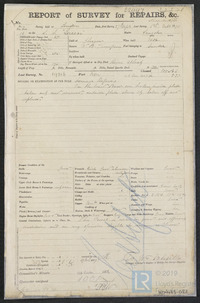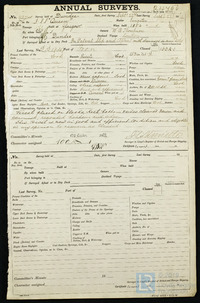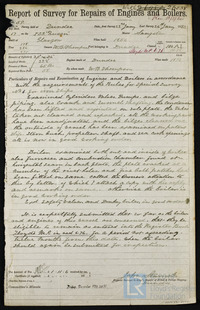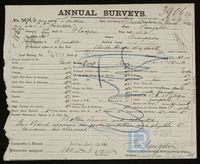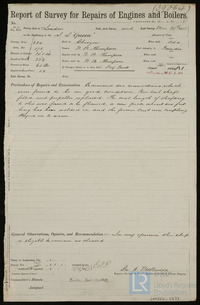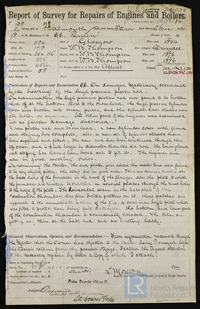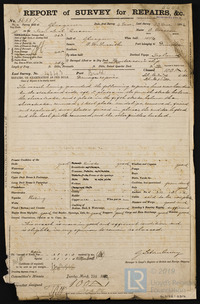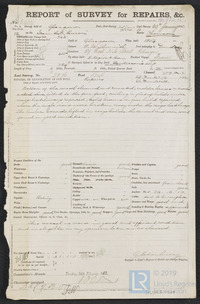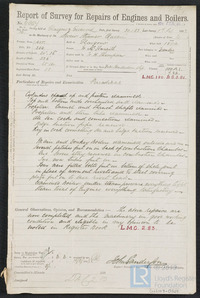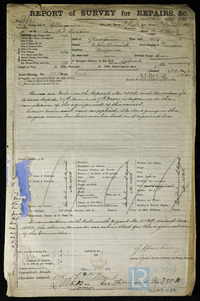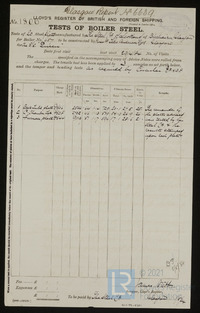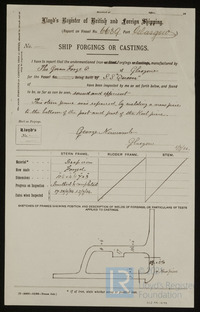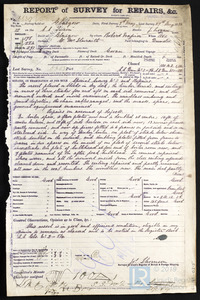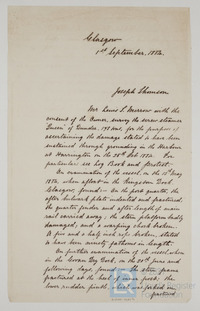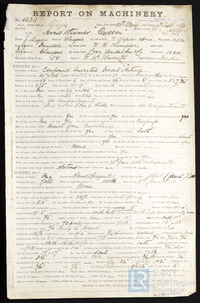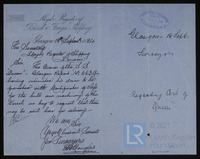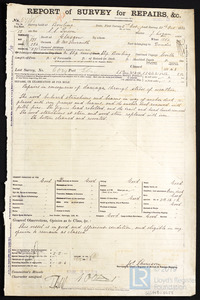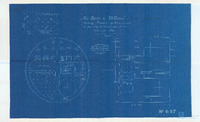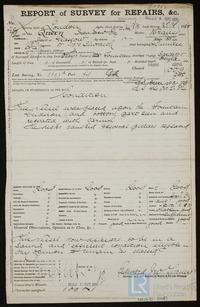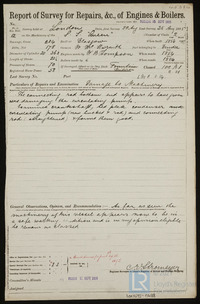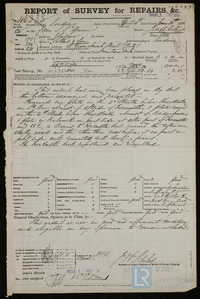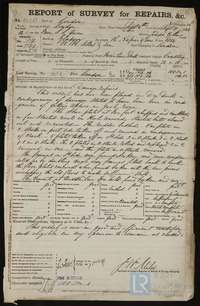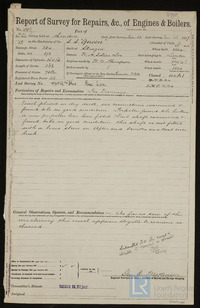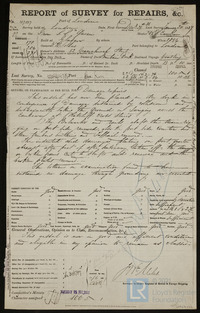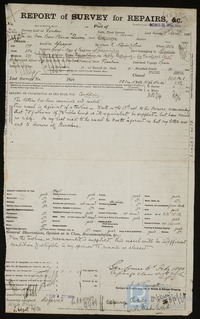- Related documents Related
- Full details Details
- Report document? Report?
Use the data export button to extract customised data sets from the Ship Plan and Survey Report Collection. Available in TSV and CSV formats.
Date recorded as the time of writing.
__/__/0000
The year in which a vessel’s construction is completed.
1854
The individual and/or organisation listed as having been responsible for constructing the vessel. This can/may be the same as the owner and/or manager.
Roberts Napier & Sons
The name of the yard where the vessel was built.
Govan
Previously referred to as signal letters (c.19th C), radio call signs enable a ship to communicate and are assigned by the International Telecommunications Union (ITU).
JRN
Official administrative title (often printed) of a record used by Lloyd’s Register or external organisations.
Iron Ships
Records that constitute Lloyd’s Register’s first official encounters with a specific vessel, e.g. a survey report.
Y
Date of the meeting of the Classing Committee.
18/07/1876
A vessel’s means of propulsion.
Steam
Is the steamer assisted by sail?
No
Confirmation as to whether the vessel was equipped with refrigeration machinery to aid in the transport of frozen or chilled cargo/goods.
No
Does the vessel possess an auxiliary power source?
No
Is electric lighting fitted to the vessel?
No
Physical extent of a record.
1
Name of ship as recorded on the record
Queen
The process of transferring a vessel to water, but not necessarily her completion.
__/__/1854
Name of the shipbuilder as it appears on the record.
W B Thompson; Robert Whyth
The port or place in which the vessel’s construction took place, at the time of writing.
Glasgow
Abbreviations of the names of ports with Lloyd’s Register survey offices.
Irn
The listed port to which a given vessel belongs.
Dundee
The individual and/or organisation listed
W B Thompson
Physical arrangement of a ship’s masts, sails and rigging.
Sr - Schooner
Predominant material(s) utilised in a vessel’s construction.
Iron
A ship’s total internal volume in ‘register tons’ (replaced by gross tonnage post 1982).
294
Is machinery fitted at the aft of the vessel?
No
Generally a smaller additional auxiliary boiler (often used while the vessel is at port).
No
Name of the Proving House responsible for the public testing and certification of a vessel’s anchors and/or chain cables.
No
Report an issue with this document
Have you noticed missing or incorrect data or images for this document?
Please let us know and we will rectify the issue as soon as possible.

